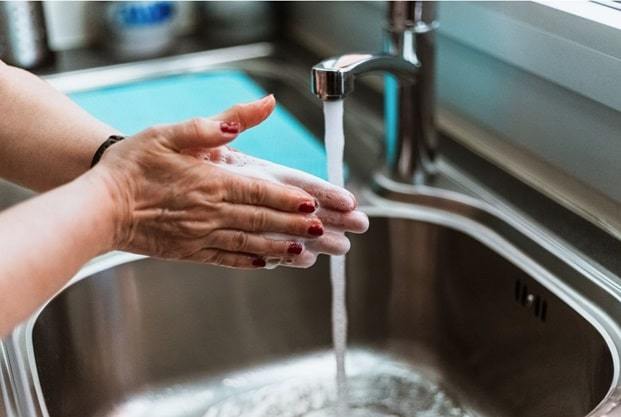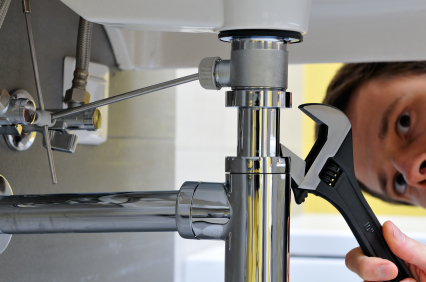Quick Solutions for Pipe Problems: Steps to Take Until A Plumber Arrives
Quick Solutions for Pipe Problems: Steps to Take Until A Plumber Arrives
Blog Article
What are your opinions concerning Plumbing Emergencies: Tips on What To Do Before?

Plumbing emergency situations can strike any time, causing stress and anxiety and prospective damage to your home. Whether it's a burst pipeline, a stopped up drain, or a leaky tap, understanding how to take care of the scenario up until a professional plumbing professional gets here can save you from further difficulties. This post offers essential emergency plumbing pointers to assist you mitigate damages and restore control during a pipes crisis.
Switch off the Water System
The first step in any kind of plumbing emergency situation is to turn off the water supply. For local issues, such as a dripping faucet or commode, shut off the shutoff near the fixture. When it comes to a major leakage or burst pipe, find your home's main water shut-off shutoff and turn it off quickly. Understanding the area of these valves ahead of time can save beneficial time during an emergency situation.
Address Small Leakages with Temporary Repairs
Tiny leaks can swiftly become considerable issues if left unattended. Make use of these short-term solutions until specialist help shows up:
While these solutions aren't permanent, they can assist decrease water loss and damages.
Unclog Drains Safely
A clogged up drain can be an aggravating and unpleasant issue. Here's exactly how to tackle it:
If these techniques do not function, stay clear of making use of too much force, as it may worsen the blockage.
Manage Overflowing Toilets
An overflowing bathroom can trigger instant turmoil. Right here's what you must do:
Turn off Your Water Heater
In certain emergencies, such as a ruptured pipeline, it's smart to turn off your water heater. This avoids overheating or damages to the system when water stops flowing. Switch off the power supply to the hot water heater (electric or gas) and let it cool down to stay clear of possible dangers.
Briefly Quit a Ruptured Pipeline
A burst pipe can lead to substantial water damages in minutes. To reduce the problem:
Call a professional plumbing right away to address the trouble completely.
Deal With Frozen Piping Thoroughly
In colder climates, frozen pipelines are a typical emergency situation. If you presume a frozen pipe:
Prevent Additional Damage
Taking fast action to lessen damages can save you money and time in the long run. Below's how:
. Have an Emergency Situation Plumbing Set
Prepare a standard plumbing emergency package to handle minor concerns effectively. Your set needs to include:
Having these devices accessible can make a significant difference in your capacity to manage emergencies.
Know When to Call an Expert.
While quick fixes can aid briefly, particular pipes concerns require instant expert focus. Call a plumber if:.
Immediately speaking to a specialist ensures the issue is dealt with properly and stops more complications.
Verdict.
Pipes emergency situations can be frustrating, yet with the right knowledge and tools, you can handle the circumstance efficiently up until assistance shows up. By turning off the water supply, addressing small leaks, and using temporary fixes, you can minimize damages and maintain your home safe. Bear in mind, these pointers are short-lived remedies; constantly seek advice from a certified plumbing to deal with the root cause of the problem. Preparation and fast reasoning are your finest allies in any type of plumbing emergency.
8 Helpful Tips for Managing Plumbing Emergencies at Home
If your plumbing system hasn’t failed once, wait for it because almost everyone has a story to tell. Sometimes, it could be simple emergencies such as a leaking pipe, a blocked cistern, or even a big burst pipe. In situations like this, you need to have some handy tips to save you some money and from possible damages.
Take care of minor issues early.
Sometimes, you could have avoided an emergency by taking proactive measures while it was still early. Some major plumbing emergencies can be a result of an ignored minor issue. We recommend that you have items like plumbing tapes and other related items. A plumbing tape can allow you to manage minor leaks before the plumber arrives.
Cut off the water supply.
This tip is essential in almost any type of leakage problem. For problems like minor leakages in the toilet or kitchen, turn off the supply that takes water to the affected pipes. If the leakage is a major pipe, you must shut off the supply valve to the entire building. This will help you avoid flooding your home and neighbors if you share a flat.
Know your plumbing system
Folks typically move into a new apartment without understanding the water supply around the building. This can prove disastrous if a water emergency arises and the plumber is far away. The previous tip will prove useless if you don’t practice this one. More importantly, know where your water shut-off valve is located – you’ll need that knowledge to prevent potential home floods.
Have some common handy tools
There are lots of plumbing emergencies that you can handle without hiring a plumber. That’s why you must keep some tools available always. Some tools that you can use to fix simple plumbing emergencies easily include plumbing tapes, screwdrivers, thread seal tapes, plungers, pliers, tape measures, and rubber gloves.
Insulate your pipes from cold
You’ll save yourself from many plumbing expenses if you protect your water pipes from the cold. This is because of the harmful effects that cold weather can have on your pipes. During winter, your pipes can burst from being overly expected to freezing temperatures. So, make sure insulators are there to keep the pipes working correctly.
Avoid practices that will clog your toilet.
Many people indulge in practices that can damage the plumbing system of the entire building. One of these is when they use their toilet to dispose-off garbage. They flush all kinds of things, such as paper towels, bandages, hairs, female sanitary products, etc., down the toilet. This will block your toilet in the long run, incurring unnecessary expenditures. Dump such waste in the trash instead.
Check your dials regularly.
Sometimes, there could be leakages in your home without noticing them in time. So, constantly monitor your water meter dial. If the dial is reading when there is nobody using water, this is an indicator that there is leaking. Check for leaks immediately. Call a plumber as soon as possible if you can’t find any.
https://www.constructionplacements.com/8-helpful-tips-for-managing-plumbing-emergencies-at-home/

As a person who reads on What to Do During a Plumbing Emergency, I thought sharing that portion was a great idea. Sharing is good. Helping others is fun. Thanks for your time. Don't hesitate to visit our blog back soon.
Browse Our Site Report this page